Deputy Ambassador of the Republic of Lithuania, Donatas Butkus, talks about assistance to destroyed communities, reconstruction of schools, and the role of Ukrainian journalists during the war.
Lithuania continues to support Ukraine not only on the battlefield, but also in the fight for truth, freedom of speech, and restoration of life in communities. Since the beginning of the full-scale invasion, the total amount of Lithuanian assistance to Ukraine has already exceeded EUR 1.6 billion, encompassing military and humanitarian support, as well as infrastructure reconstruction and rehabilitation programs.
“This was stated during an online press conference for Ukrainian regional media, organized by the National Union of Journalists of Ukraine (NUJU) within the framework of the training course called Strengthening the Resilience of Frontline Media as a Tool for Combating Disinformation,” Deputy Ambassador of the Republic of Lithuania to Ukraine Donatas Butkus said.
The diplomat emphasized that Lithuania highly values the role of Ukrainian journalists who document the consequences of aggression and counteract russian propaganda. Local editorial offices in frontline communities often remain the only source of verified information when communications and television are cut off by shelling.
Journalists are the last line of truth
“Ukrainian journalists are the eyes and ears of their society, and sometimes the last line of defense against silence and manipulation,” said Donatas Butkus.
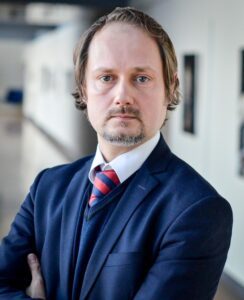 Russia is spending hundreds of millions of euros on waging an information war — spreading fear, mistrust, and fake narratives. They are aimed not only at Ukraine, but also at Europe. Donatas Butkus is convinced that countering russian propaganda is possible only through joint efforts — by journalists, the state, educational institutions, and opinion leaders.
Russia is spending hundreds of millions of euros on waging an information war — spreading fear, mistrust, and fake narratives. They are aimed not only at Ukraine, but also at Europe. Donatas Butkus is convinced that countering russian propaganda is possible only through joint efforts — by journalists, the state, educational institutions, and opinion leaders.
“It is impossible to defeat disinformation alone — neither within the country nor at the regional level. Victory over russian aggression lies both in destroying its propaganda machine and in building a resilient society,” the diplomat emphasized.
He recalled that Lithuania has many years of experience in countering russian disinformation since 1990, when it regained its independence.
The country blocks hostile TV channels, creates content for the russian-speaking audience on its own, develops startups that use artificial intelligence to track manipulations, and invests in media literacy courses for schoolchildren, students, and journalists.
Reconstruction and humanitarian aid
“Ukraine is heroically defending not only its land, but also the freedom and values of the entire civilized world. Our duty is to do everything possible to accelerate its victory,” Donatas Butkus emphasized.
Lithuania remains one of Ukraine’s most active allies. The country’s total assistance has already exceeded EUR 1.675 billion, including 0.25% of GDP, which is long-term military assistance (such as drones, ammunition, air defense systems, and military training).
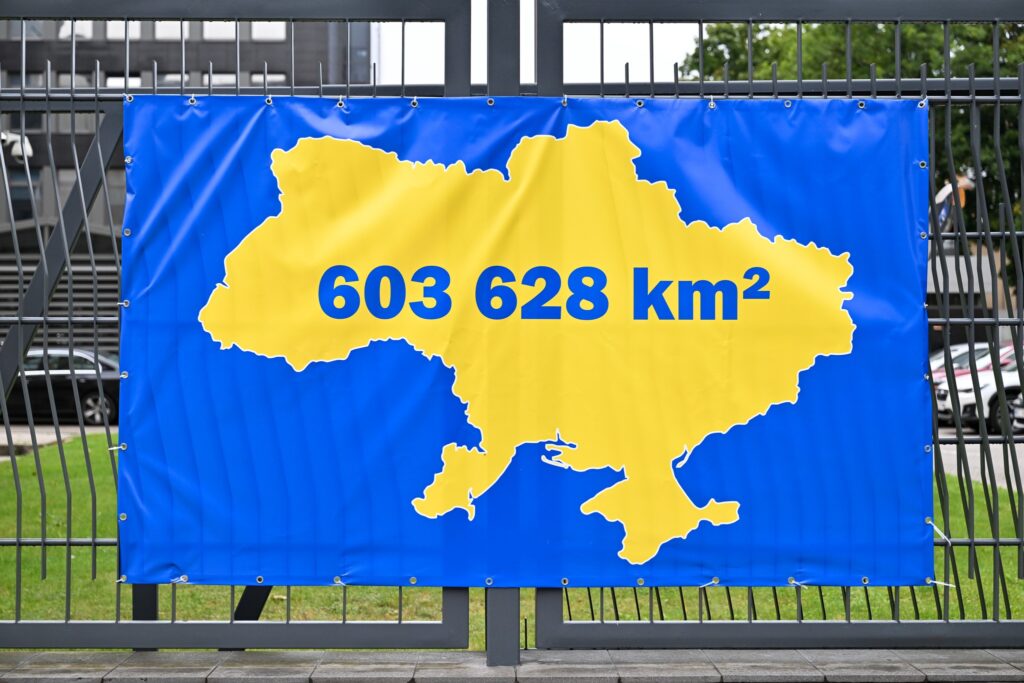
The reconstruction budget is increasing annually, from EUR 1 million in 2022 to EUR 13 million in 2025. Eight infrastructure projects have already been implemented, ranging from mobile settlements for displaced people to schools and kindergartens with shelters in the Kyiv, Mykolayiv, and Odesa Regions. In particular, Lithuania plays a leading role in the “Shelter” coalition, whose goal is to build shelters for educational institutions in various regions of Ukraine, from Sumy to Mykolayiv.
“Even where shelling continues, people continue to live. We want children to be able to study, and communities to recover. This is why we help build shelters, schools, and hospitals,” the diplomat said.
Other areas include a EUR 15 million rehabilitation program, covering the treatment of the wounded, infrastructure development in Lviv, Dnipro, and Zhytomyr, as well as the training of rehabilitation specialists.
In addition, Lithuania, together with Iceland, leads the demining coalition, having raised over EUR 100 million for these projects.
On supporting critical infrastructure
Lithuania was one of the first countries to provide material support to Ukraine when russia began to destroy critical and energy infrastructure.
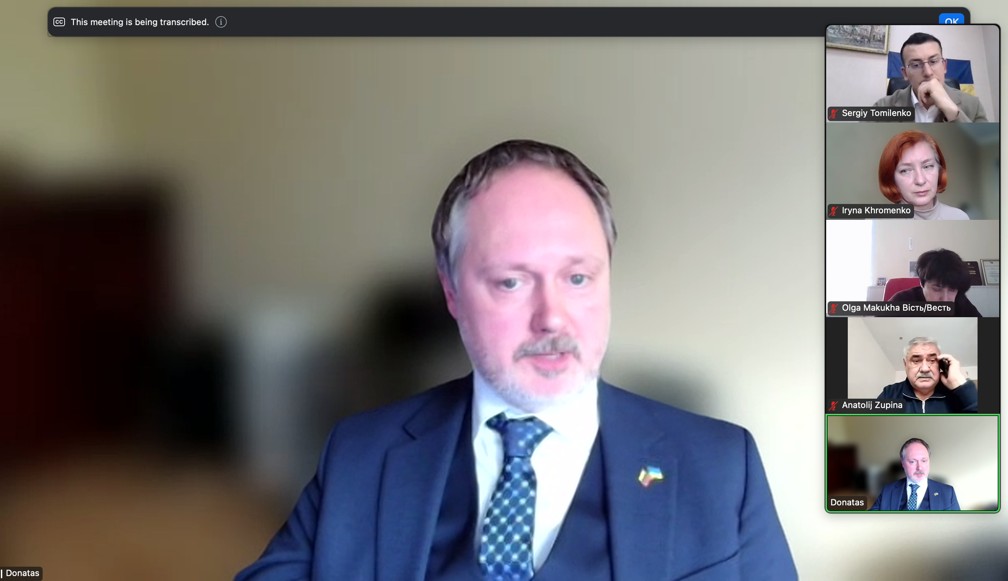
“Previously, we had similar central heating power plants, and there was equipment left that was stored. We were able to help Ukraine and provided this equipment to various regions. We are helping Ukraine in transforming the energy sector to green – this is investment assistance for the installation of solar panels,” Donatas Butkus informed.
In total, Lithuania has allocated over EUR 102 million to support Ukraine’s energy sector, with a focus on equipment for emergency repairs.
According to him, solar power plants are also being installed at facilities that Lithuania is rebuilding, such as schools and kindergartens. Under agreements with the Ukrainian Government, Lithuania also supplies Ukraine with liquefied gas.
Friendship of Kherson Region and Lithuania: Historical Connection and Modern Support
In the village of Vesele, Kherson Region, there is a unique monument of the Lithuanian-russian era – the Vitovt Tower, which has become a symbol of the ancient ties between our peoples. Anatolii Zhupyna, the editor-in-chief of the Kherson-based newspaper Novyi Den, recalled this fact.
“These relations with the South of Ukraine are not interrupted,” stressed the diplomat. “In June, our Minister of Foreign Affairs, Kęstutis Budrys, visited the Kherson Region. It was a sign of solidarity with the people who live under shelling every day.”
Lithuania consistently supports the region — it transfers medicines, ambulances, and equipment for hospitals. This cooperation has become a model of true friendship, founded on shared values and mutual support.
“Lithuania will always be by Ukraine’s side — until victory and after,” assures Deputy Ambassador Donatas Butkus.
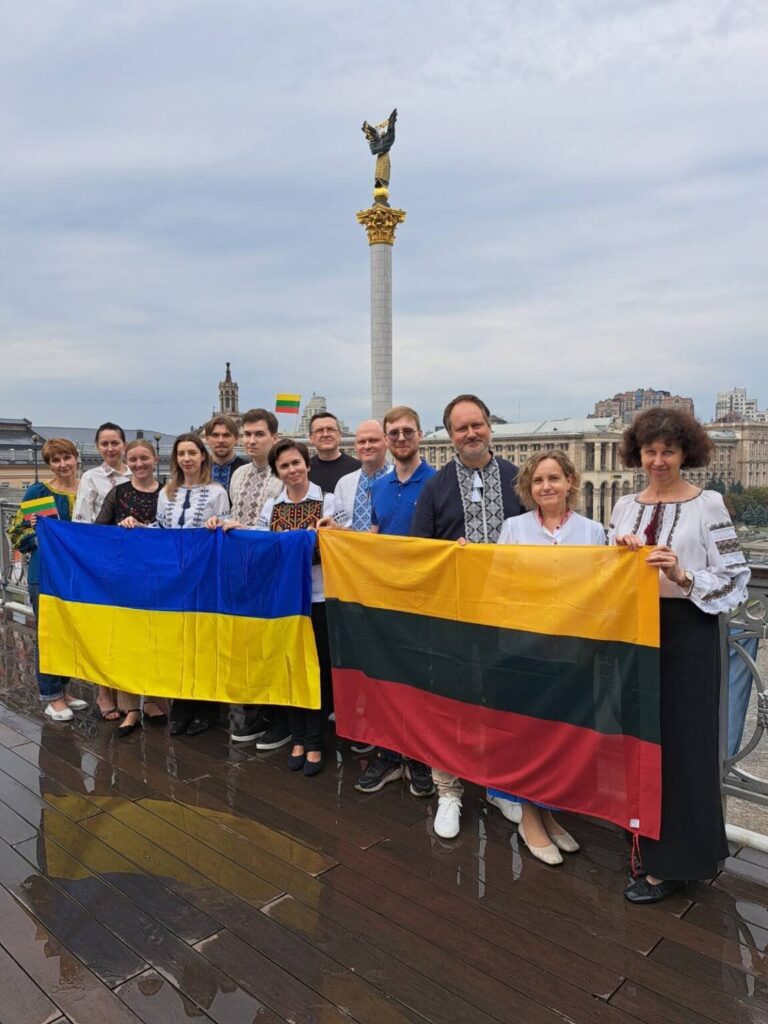
Reference Information
Lithuania is among the top three countries in providing assistance to Ukraine. The total amount of support is over EUR 1.675 billion.
The country provides active political support for Ukraine’s accession to the EU (with membership by 2030). NATO is actively developing Ukraine’s European integration programs, including the Ukraine2EU initiative with a budget of EUR 16.7 million, as well as the new Children First humanitarian program aimed at rehabilitating children who have returned from russian deportation.
Over 40,000 Ukrainian refugees live in Lithuania.
Lithuanian NGOs have collected over EUR 100 million in donations for Ukraine.
One of the symbols of public aid is the Blue/Yellow organization, which has been transferring equipment and supplies to the front since 2014.
The project is funded by the Embassy of the Republic of Lithuania in Ukraine within the framework of the Development Cooperation and Democracy Promotion Programme.

Lesia Popil
NUJU Information Service
Photo from the Facebook page of the Lithuanian Embassy in Ukraine

 THE NATIONAL UNION OF
JOURNALISTS OF UKRAINE
THE NATIONAL UNION OF
JOURNALISTS OF UKRAINE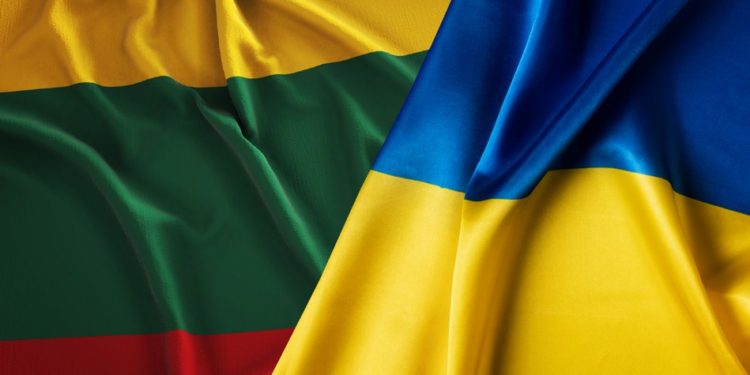
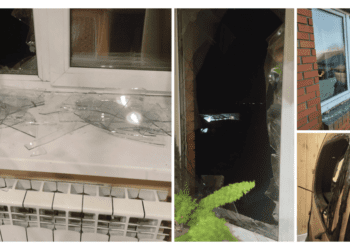
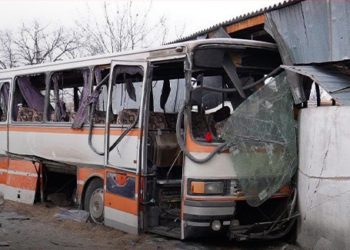














Discussion about this post